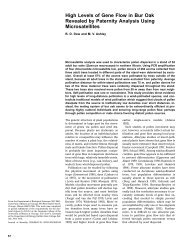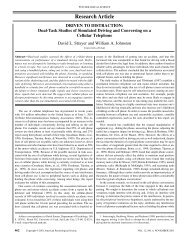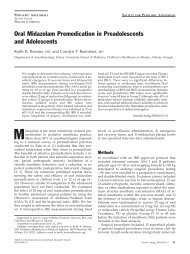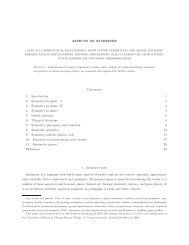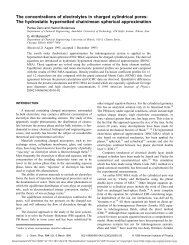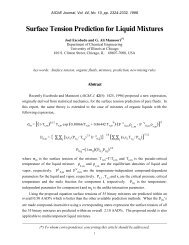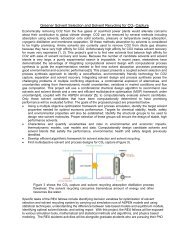Repeating Lenin by Slavoj Zizek
Repeating Lenin by Slavoj Zizek
Repeating Lenin by Slavoj Zizek
You also want an ePaper? Increase the reach of your titles
YUMPU automatically turns print PDFs into web optimized ePapers that Google loves.
<strong>Repeating</strong> <strong>Lenin</strong> <strong>by</strong> <strong>Slavoj</strong> <strong>Zizek</strong><br />
9/20/11 2:53 PM<br />
perceptible only to those who accomplish this leap, NOT to any neutral observers. What the<br />
EXTERNALITY means here is that this truth is nonetheless UNIVERSAL, not just the “pointof-view”<br />
of a particular historical subject: “external” intellectuals are needed because the<br />
working class cannot immediately perceive ITS OWN PLACE within the social totality which<br />
enables it to accomplish its “mission” — this insight has to be mediated through an external<br />
element.<br />
And why not link these two externalities (that of the traumatic experience of the divine Real,<br />
and that of the Party) to the third one, that of the ANALYST in the psychoanalytic cure? In all<br />
three cases, we are dealing with the same impossibility which bears witness to a materialist<br />
obstacle: it is not possible for the believer to “discover God in himself,” through self-immersion,<br />
<strong>by</strong> spontaneously realizing its own Self — God must intervene from outside, disturbing our<br />
balance; it is not possible for the working class to actualize spontaneously its historical mission<br />
— the Party must intervene from outside, shaking it out of its self-indulgent spontaneity; it is not<br />
possible for the patient/analyst to analyze himself — in contrast to the Gnostic self-immersion,<br />
in psychoanalysis, there is no self-analysis proper, analysis is only possible if a foreign kernel<br />
which gives body to the object-cause of the subject’s desire. Why, then, this impossibility?<br />
Precisely because neither of the three subjects (believer, proletarian, analyst) is a self-centered<br />
agent of self-mediation, but a decentered agent struggling with a foreign kernel. God, Analyst,<br />
Party — the three forms of the “subject supposed to know,” of the transferential object, which is<br />
why, in all three cases, one hears the claim “God/Analyst/ the Party is always right”; and, as it<br />
was clear already to Kierkegaard, the truth of this statement is always its negative — MAN is<br />
always wrong. This external element does not stand for objective knowledge, i.e. its externality<br />
is strictly INTERNAL: the need for the Party stems from the fact that the working class is never<br />
“fully itself.”<br />
In his Introduction to the Critique of Hegel’s Philosophy of Right, Marx already deploys<br />
something like the logic of hegemony: the emergence of a “universal class,” a particular class<br />
which imposes itself as universal, engendering global enthusiasm, standing for society AS<br />
SUCH against the ancien regime, anti-social crime AS SUCH (like bourgeoisie in the French<br />
revolution). After follows the disillusion so sarcastically described <strong>by</strong> Marx: the day after, the<br />
gap between universal and particular becomes visible again, capitalist vulgar profit as the<br />
actuality of universal freedom, etc. — For Marx, of course, the only universal class whose<br />
singularity (exclusion from society of property) guarantees its ACTUAL universality, is the<br />
proletariat. This is what Ernesto Laclau rejects in his logic of hegemony: for Laclau, the shortcircuit<br />
between the Universal and the Particular is ALWAYS illusory, temporary, a kind of<br />
http://www.marxists.org/reference/subject/philosophy/works/ot/zizek1.htm<br />
Page 8 of 57



